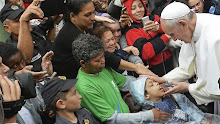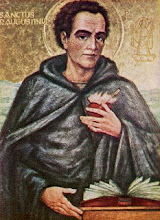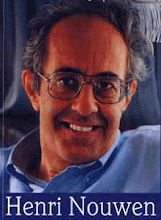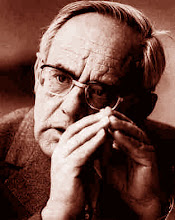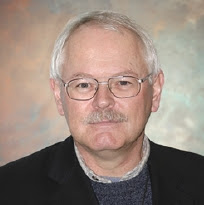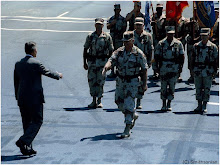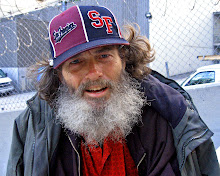 “How can we embrace poverty as a way to God when everyone around us wants to become rich? Poverty has many forms. We have to ask ourselves, ‘What is my poverty?’ Is it lack of money, lack of emotional stability, lack of a loving partner, lack of security, lack of safety, lack of self-confidence? Each human being has a place of poverty. That’s the place where God wants to dwell! “How blessed are the poor.” Jesus says (Matthew 5:3). This means that our blessing is hidden in poverty. We are also inclined to cover up our poverty and ignore it that we often miss the opportunity to discover God, who dwells in it. Let’s dare to see our poverty as the land in which our treasure is hidden.”
“How can we embrace poverty as a way to God when everyone around us wants to become rich? Poverty has many forms. We have to ask ourselves, ‘What is my poverty?’ Is it lack of money, lack of emotional stability, lack of a loving partner, lack of security, lack of safety, lack of self-confidence? Each human being has a place of poverty. That’s the place where God wants to dwell! “How blessed are the poor.” Jesus says (Matthew 5:3). This means that our blessing is hidden in poverty. We are also inclined to cover up our poverty and ignore it that we often miss the opportunity to discover God, who dwells in it. Let’s dare to see our poverty as the land in which our treasure is hidden.”by Henri Nouwen

 In the past two weeks, more than 200 rosaries have been lovingly handed out to homeless women and men living on the streets, under bridges and in alleyways. Most prefer to wear them around the neck. Others put them in a pocket to later draw upon in times of trouble or while feeling alone and frightened in the night. It is because of this great need to feel God’s presence that almost everyone becomes "Catholic" as they most gratefully accept and grasp upon the rosary. More than prayer cards and other religious items, it is the most loved single source of comfort preferred by those living in homelessness.
In the past two weeks, more than 200 rosaries have been lovingly handed out to homeless women and men living on the streets, under bridges and in alleyways. Most prefer to wear them around the neck. Others put them in a pocket to later draw upon in times of trouble or while feeling alone and frightened in the night. It is because of this great need to feel God’s presence that almost everyone becomes "Catholic" as they most gratefully accept and grasp upon the rosary. More than prayer cards and other religious items, it is the most loved single source of comfort preferred by those living in homelessness. To both discover and live God’s message of mercy to the poor is the equivalent of physicists discovering the all-encompassing singularity theory. The "Mercy Message" is THE “God surprise” and THE paradox that defines the Kingdom of God. The mystery of mercy is revealed by the Holy Spirit – to those who are spiritually and psychologically ready to hear and to hear, to see and to see, to act and to act upon it.
To both discover and live God’s message of mercy to the poor is the equivalent of physicists discovering the all-encompassing singularity theory. The "Mercy Message" is THE “God surprise” and THE paradox that defines the Kingdom of God. The mystery of mercy is revealed by the Holy Spirit – to those who are spiritually and psychologically ready to hear and to hear, to see and to see, to act and to act upon it.











 Today, HIA launches a new poll question. “How many family members or friends do you know that in your opinion may be 1-2 paychecks away from being homeless if their income suddenly stopped?”
Today, HIA launches a new poll question. “How many family members or friends do you know that in your opinion may be 1-2 paychecks away from being homeless if their income suddenly stopped?” God’s preferential love for the poor and homeless goes back more than 4,000 years to the time of the nomadic tribe of Abraham. These first “chosen people” were a wandering clan that God called in their poverty to make his very own. But why a poor band of losers when he could have chosen winners like the Egyptians? Historically, God set the stage at this ancient juncture in time to demonstrate his preferential love for the poor. He called the migrant homeless clans of Abraham, Isaac and Jacob (Israel) to be his very own. With this shocking poverty-stricken choice (not a Donald Trump-style hiring pick), he sent out a seismic message that has rocked the ages. The Lord God is basically saying that, “I am the God of the poor, the lost and the downtrodden. The poor are ready to hear my voice. The rich are not.”
God’s preferential love for the poor and homeless goes back more than 4,000 years to the time of the nomadic tribe of Abraham. These first “chosen people” were a wandering clan that God called in their poverty to make his very own. But why a poor band of losers when he could have chosen winners like the Egyptians? Historically, God set the stage at this ancient juncture in time to demonstrate his preferential love for the poor. He called the migrant homeless clans of Abraham, Isaac and Jacob (Israel) to be his very own. With this shocking poverty-stricken choice (not a Donald Trump-style hiring pick), he sent out a seismic message that has rocked the ages. The Lord God is basically saying that, “I am the God of the poor, the lost and the downtrodden. The poor are ready to hear my voice. The rich are not.”


















